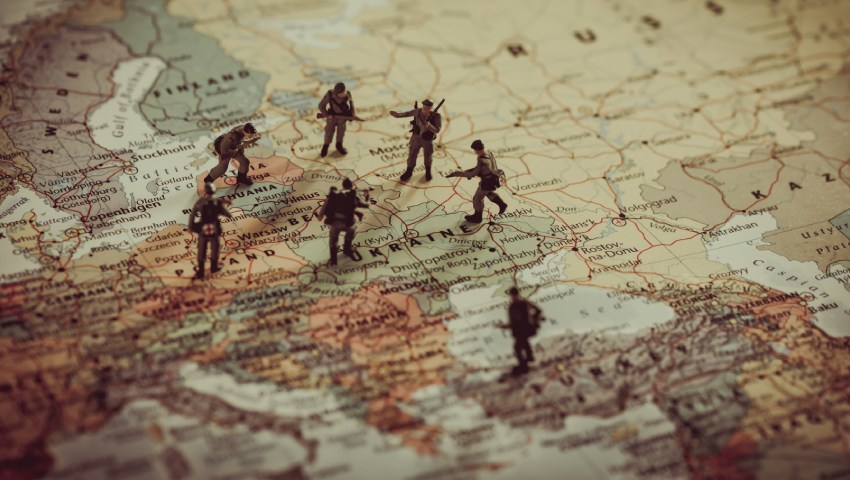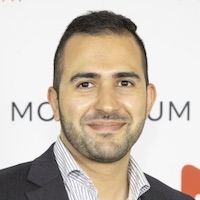Should the West “bleed Russia dry” or would escalation risk nuclear war?
To continue reading the rest of this article, please log in.
Create free account to get unlimited news articles and more!
Russian President Vladimir Putin is showing no signs of scaling back his assault on Ukraine, despite a swathe of crippling sanctions imposed by the international community.
Sanctions have included:
- bans on Russian exports;
- the removal of financial institutions from the SWIFT global payments messaging system;
- restrictive measures to prevent the Russian Central Bank from using its international reserves to undermines sanctions;
- limiting so-called golden passports for wealthy Russians connected to the Russian government; and
- establishing a task force to identify and freeze the assets of sanctioned individuals and companies that exist within their jurisdictions.
In addition to these sanctions, Western powers continue to coordinate the supply of lethal and non-lethal military equipment to Ukraine in support of the country’s resistance.
Most recently, US President Joe Biden announced an additional US$800 million ($1.09 billion) in direct security assistance, which included the provision of anti-aircraft systems; anti-armour weapons; tactical unmanned aerial systems; small arms; and ammunition.
But some analysts, including Alan Dupont from Lowy Institute, claim these measures have not gone far enough.
Dupont says it’s time for the West to “take the gloves off” before President Putin’s so-called ‘war of liberation’ turns into a ‘war of obliteration’.
“In his vainglorious march to conquest, Russian President Vladimir Putin has decided to bomb Ukraine back to the Stone Age,” he writes.
“He is deliberately and criminally targeting civilians with vacuum, cluster and phosphorus munitions to break Ukrainian morale in flagrant violation of international humanitarian law.
“Chemical and biological weapons may be next. They are weapons of mass destruction.”
Dupont stresses the way must be stopped to save lives, maintain Ukraine’s sovereignty, uphold democracy, and prevent eastern Europe and the Baltic States from “disappearing behind another iron curtain”.
As such, he calls on NATO to:
- declare and enforce a humanitarian no-fly zone over western Ukraine;
- further ramp up the supply of arms to Ukrainian forces;
- embargo all Russian oil and gas; and
- prevent any further movement of goods into Russia across the Belarus border.
“The failure to deter Putin by arming Ukraine and taking a NATO military response off the table was a serious miscalculation,” Dupont writes.
“The Russian dictator would never have invaded Ukraine if he thought the US and Europe would unite in its defence.
“The West is in danger now of an even graver mistake – allowing Putin to bluff his way to victory by threatening escalation if NATO intervenes.”
Dupont claims a measured Western response is the “best way” to prevent scalation.
“Putin knows escalation would be fatal to his rule. His economy is crumbling and his military is dangerously stretched,” he continues.
“Taking on superior NATO forces is the last thing he wants as he battles to achieve his objectives in the face of dogged Ukrainian resistance.”
The Lowy Institute analyst goes on to reference retired joint forces commander Chris Deverell, who recently claimed a no-fly zone was “necessary and achievable”.
He also quotes former British defence force chief David Richards, who suggested NATO should intervene if Russian and Ukrainian negotiators failed to reach a settlement.
Dupont adds: “Biden and European leaders worry that Putin may resort to nuclear weapons if cornered. But this misreads the man and ignores the deterrent effect of NATO’s own nuclear arsenal.
“Putin may have delusions of grandeur but he is not mad. He and his inner circle know that squeezing the nuclear trigger would threaten Russia’s and Putin’s own survival.”
But according to former White House communications adviser Pat Buchanan, the risks outweigh the benefits.
He argues the threat posed by Russia’s invasion of Ukraine does not warrant the potential break-out, of nuclear war, however unlikely it may be.
“The question remains: When did the relationship between Russia and Ukraine become a matter of such vital interest to the US that we would risk war, possible nuclear war, with Russia over it?” Buchanan asks.
According to Buchanan, by exploiting its Cold War victory as an opportunity to expand NATO in central and eastern Europe, the US has unnecessarily thrust itself into the Russia-Ukraine conflict.
“[While] Putin started this war, the US set the table for it,” he adds.
“We pushed our military alliance, NATO, set up in 1949 to contain and, if necessary, fight Russia, 1,000 miles to the east, right into Russia's face.”
However, Dupont insists the West must endeavour to “bleed Russia dry” — militarily, financially and economically.
“Half measures will result only in a prolongation of the war and more human suffering,” he writes.
Dupont acknowledges that providing an “off-ramp” for President Putin would be critical to ending the war, but claims a compromise must not be at the expense of Ukraine’s sovereignty.
“The idea that the Donbas region, Crimea and a connecting southern landbridge should be ceded to Russia is morally and politically untenable,” he argues.
“Putin must not be rewarded for bad behaviour after the destruction he has reaped on his neighbour. No Ukrainian government would countenance a sell-out deal.
Putin will have to be satisfied with a Ukrainian promise not to join NATO, giving him the buffer state he wants. A concession the Zelensky government already has signalled it is willing to make. Sanctions should be lifted only after a peace agreement is reached.”
Dupont concludes: “When this war is over the world will be a very different place. Russia will be a much-diminished player on the international stage. And Putin will remain a pariah for the rest of his political life, which may be shorter than he thinks.”
Get involved with the discussion and let us know your thoughts on Australia’s future role and position in the Indo-Pacific region and what you would like to see from Australia's political leaders in terms of partisan and bipartisan agenda setting in the comments section below, or get in touch with
Charbel Kadib
News Editor – Defence and Security, Momentum Media
Prior to joining the defence and aerospace team in 2020, Charbel was news editor of The Adviser and Mortgage Business, where he covered developments in the banking and financial services sector for three years. Charbel has a keen interest in geopolitics and international relations, graduating from the University of Notre Dame with a double major in politics and journalism. Charbel has also completed internships with The Australian Department of Communications and the Arts and public relations agency Fifty Acres.

 Login
Login








